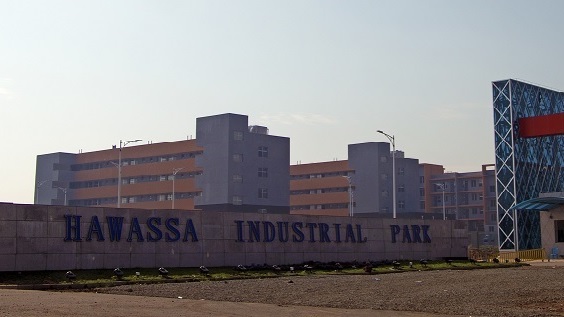
The government has endorsed Industrial Parks Proclamation announcing that industrial parks can be established publicly and privately.
Addis Adaba (Ethiopian Herald)–Ethiopia has continued becoming investors’ choice. It is attracting more Foreign Direct Investment (FDI) from time to time. Particularly, textile and garment manufacturing industries, as the sectors are labor intensive, they create millions of job opportunities,and help transfer technology. They have managed to attract both local and foreign big companies in the budget year. Thus, becoming Africa’s light manufacturing industry hub is well in progress.
In fact, all success stories of the nation’s economy; registering continuous double-digit economic growth can be attributed to many factors, well designed and articulated policies and strategies of the nation, among others. The strategy has put in a place national vision aiming at achieving middle-income status by 2025; implementing a climate resilient green economy.
Yes, all ambitious development plans of the country aim at propelling rapid industrialization. They have been eyeing at manufacturing industry expansions, accelerating economic transformation and attracting domestic and Foreign Direct Investment (FDI). Hence, the government has redoubled efforts to ensure the above mentioned underlying factors ; developing industrial and agro-industrial parks to facilitate the necessary services and accommodations for industries.
To this effect, the government has endorsed Industrial Parks Proclamation announcing that industrial parks can be established publicly and privately. In this case, the Industrial Parks Development Corporation (IPDC) is in charge of managing the development of large, medium and light industrial parks. But, Integrated Industrial Parks, expansion are managed by the joint efforts of the Ministries of Industry and Agriculture, which have currently commenced laying a cornerstone to start construction.
READ: Ethiopia Is by Far the Best Investment Destination in Africa, Says Karel Claes
Ethiopia has targeted a billion USD annual investment in industrial parks over the next decade to boost exports and becoming Africa’s top manufacturer. The government has a strategic plan to invest in the sector and will make house textile, leather, agro-processing and allow others establish labor intensive factories in the parks.
Presently, following favorable conditions created, well-articulated policies and strategies existence , peace and security stabilization, incentives among others, foreign investors have continued eyeing Ethiopia investment choice.
For instance, recently some Chinese Companies have visited the country and decided to invest in Ethiopia. Part of them, of course are licensed in textile and garment manufacturing industries. The decision made by the companies to invest in Ethiopia surely indicates that Ethiopia has proven becoming a favorable investment destination for large companies.
However, while prioritizing to attract investors, ways of licensing should be taken into considerations. Priority has to be given to those who have high profile. Focus must be placed on big and effective companies which can meet the targets of both the companies and the country’s interest. Because, sometimes it has been observed that some companies do not act as per their words. Often some pledge to export products so as to generate foreign currency. But they fail to rise up to their promises. Hence, the government has to encourage potential and experienced investors who prove globally competitive to contribute to the nation’s economic development.
Above and beyond accommodating investors, the nation should stress on producing quality raw materials or inputs, like cotton in the required volume for emerging garment and textile industries. Yes, although the nation has untapped potential in this case, it imports cotton and spends its foreign currency.
Thereof, rigorous training for both commercial and smallholder farmers should be given so that they could supply much-needed cotton. Besides, creating market linkages and accessing current market price information would also be instrumental in fulfilling factories raw material demand and ensuring out growers become economically beneficiaries.
READ: Unilever Global Company to Expand Investment in Ethiopia
According to the investment commission, despite the recent unrest in the country, the nation has not failed to attracted Foreign Direct Investment (FDI) with a combined capital of 1.2 billion USD during the first half of the current fiscal year. But the nation has targeted to attract FDI with a combined capital of close to 3.5 billion USD during the budget year.
In sum, carrying out recurrent assessments on challenges and investment opportunities, intensifying promotional activities, facilitating further play grounds for investors would highly attract both local and foreign investors than ever. The dream of becoming Africa’s light manufacturing hub will be realized if we facilitate investment horizons and support investors accordingly.
Source: The Ethiopian Herald
——
Other stories:
- Chinese Textile Firms Continue to Invest in Ethiopia
- Car Assembly Plant Built in Dire Dawa to Go Operational
- Two New Textile and Garment Parks to Come up in Ethiopia
- Ethiopia–Djibouti Railway: A First Step to Trans-Africa Railway?
- TDB Bank Approves $60mln Loan Request from Three Ethiopian Companies
